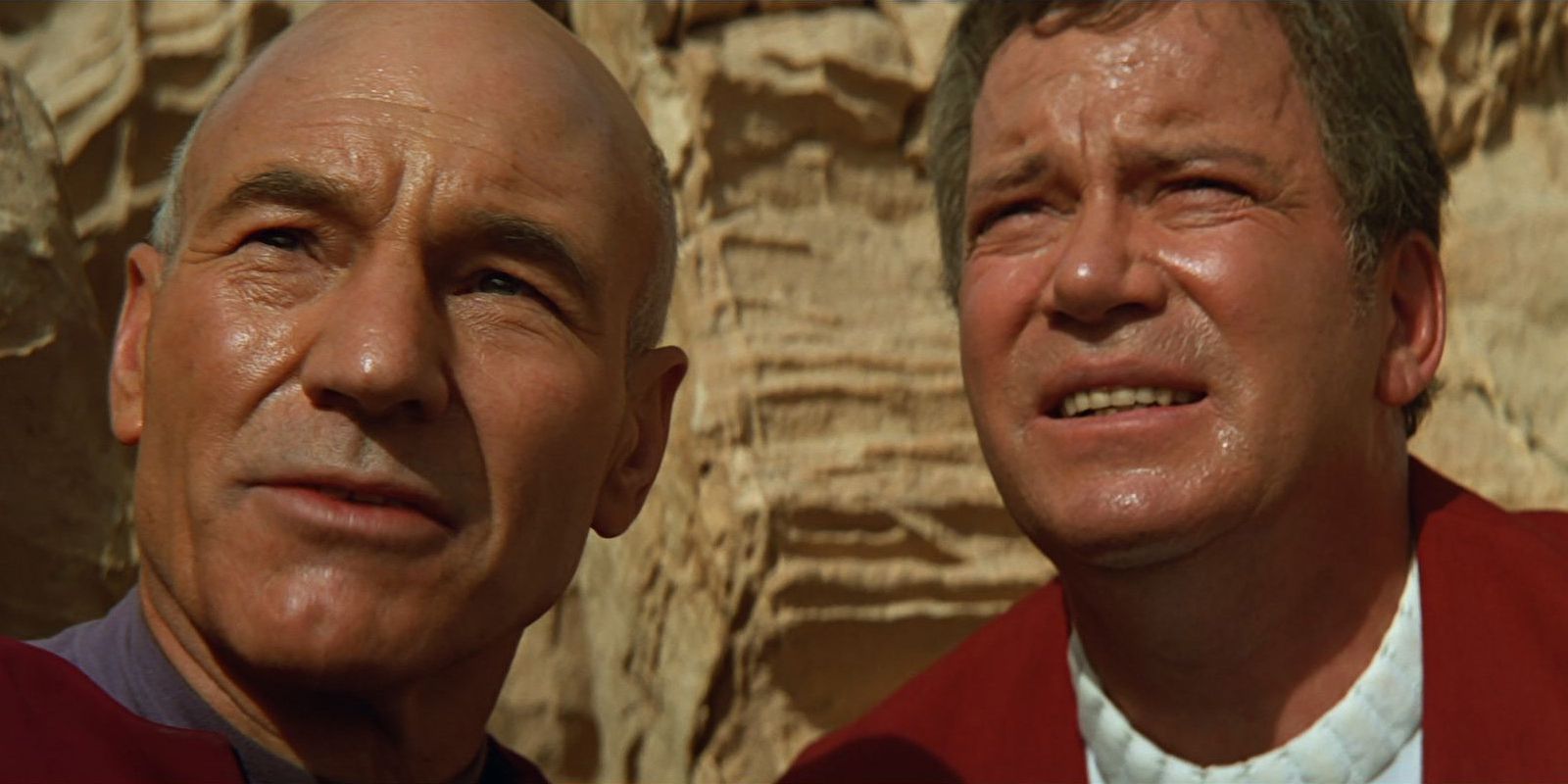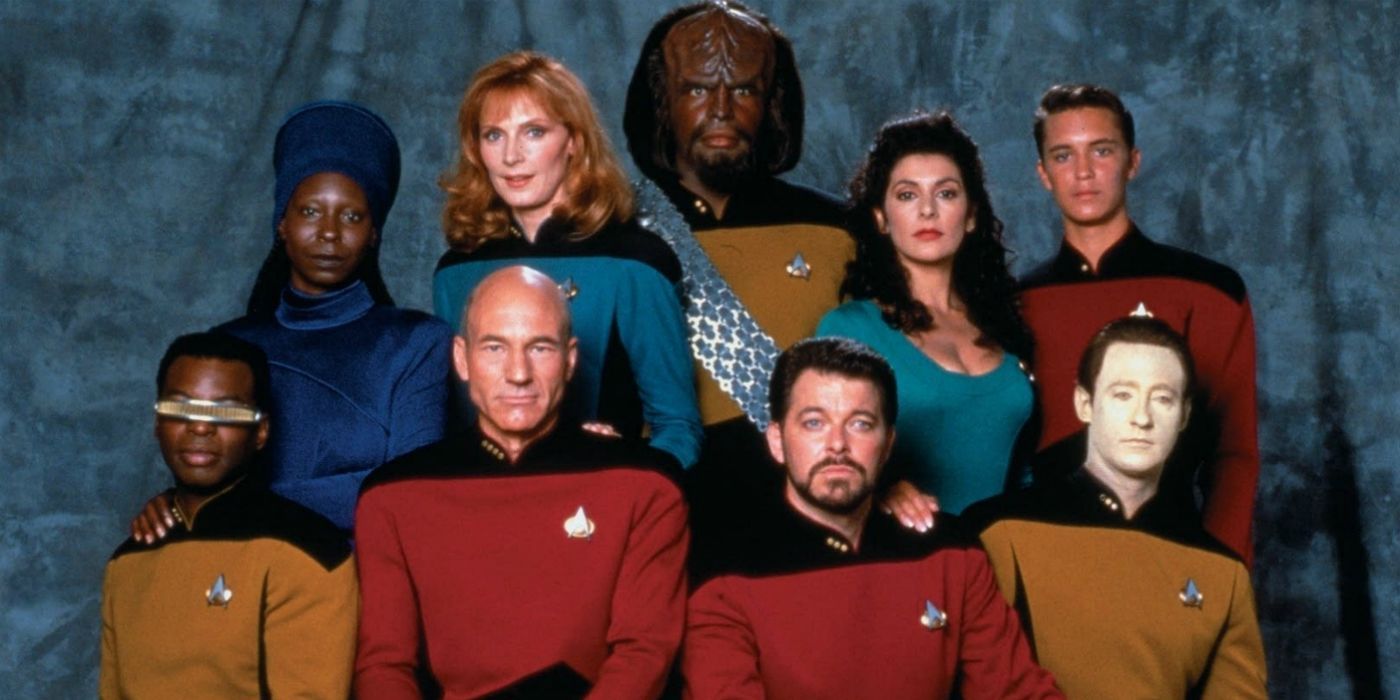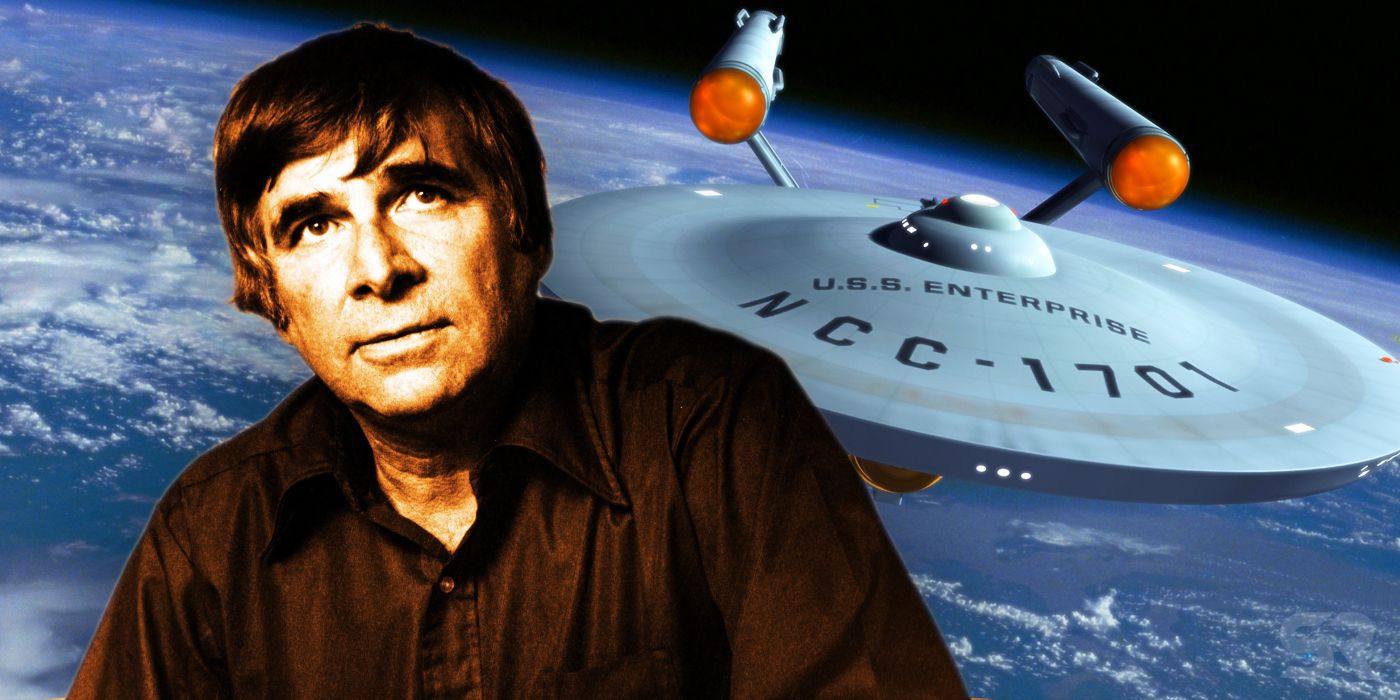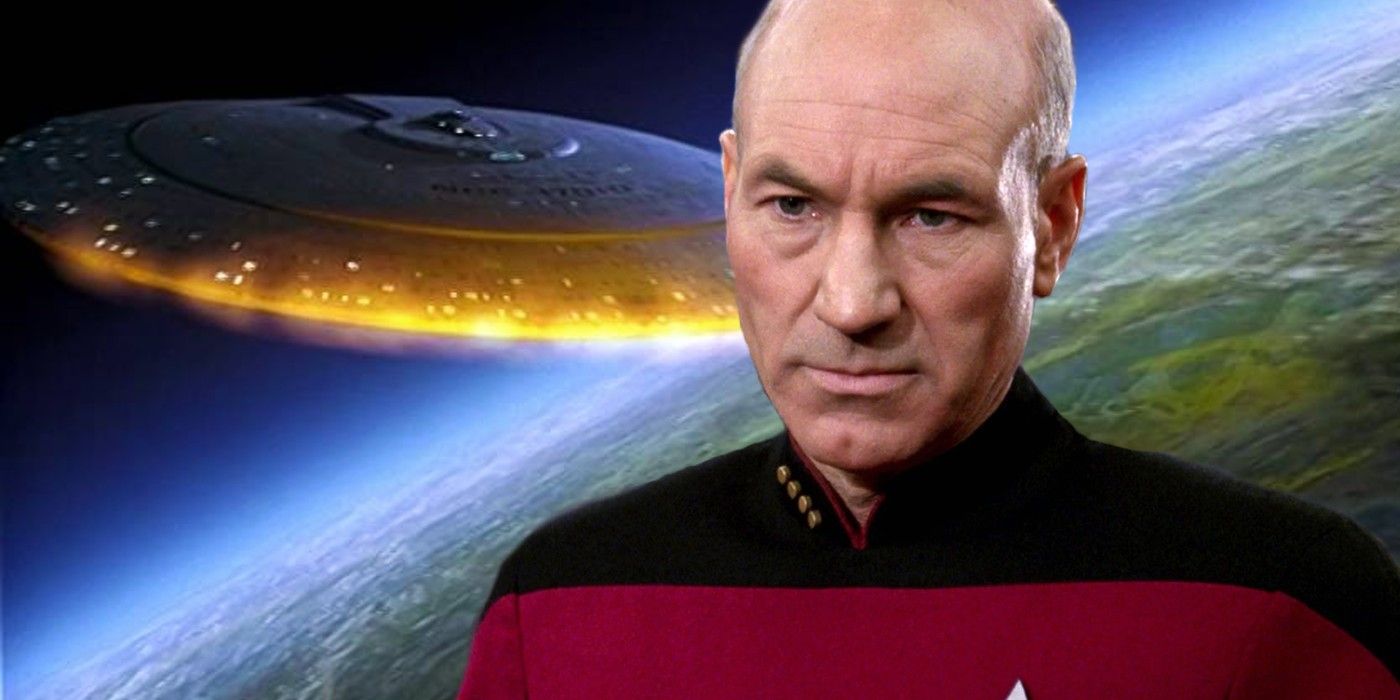
Star Trek: Generations was a huge turning point for the franchise, elevating the crew of Star Trek: The Next Generation and saying goodbye to the era of Captain Kirk. Generations debuted in 1994, the first Star Trek film to feature the cast of TNG beyond the end of its run after seven seasons.
The film revolves around a mysterious energy ribbon called the Nexus, which serves as a gateway to a sort of tangible heaven. A madman named Tolian Soran (Malcolm McDowell) is determined to get back into the Nexus, no matter the cost. Soran's decades-long mission to re-enter his personal paradise causes him to run afoul of both Captain Kirk and Captain Picard, uniting the two iconic captains for the first and only time onscreen.
Generations was a moderate box office success and got middling reviews from critics and fans alike. Yet it still stands as a massive moment of transition for the franchise as a whole, effectively closing the book on Star Trek: The Original Series while confirming TNG as the face of a quickly expanding franchise.

Star Trek: Generations is the moment when the mantle of Star Trek was officially handed over to the crew of the Enterprise-D, but in reality, it had happened years earlier. Star Trek: The Next Generation launched in 1987 and, while the show would take a couple of seasons to find its footing, it was a consistent ratings behemoth, challenging network shows like Seinfeld and Home Improvement at its peak.
Conversely, by the late '80s the film series starring the cast of Star Trek: The Original Series was running on fumes. 1989's Star Trek V: The Final Frontier was a massive bomb both at the box office and with critics and fans. It took something of a miracle for the final TOS film, Star Trek VI: The Undiscovered Country, to not only be a great and fitting end to the franchise originators but to get it produced at all. The Undiscovered Country was a modest hit, but it was also definitively the end for TOS. It was clear going forward TNG would be the face of the film franchise, and along with its still constant rotation in syndication in 1994, would remain on people's televisions for years to come as well.

Generations is most famous for the third act death of Captain James T. Kirk. It's not a particularly memorable death scene, though Kirk does go out saving millions of lives. That he's mourned and buried by Captain Picard is a nice – if slightly ham-handed – way of closing the chapter not only on the character of Kirk, but on his era of Star Trek originated and influenced by Gene Roddenberry.
Generations was the first Star Trek film released after Roddenberry's death, though he had long ago lost creative control of the movies to people like Nicholas Meyer, Leonard Nimoy, and Harv Bennett. But even on the movies where Roddenberry wasn't the lead creative force, he had a voice in the room and was still able to subtly alter things he didn't think fit with his vision of the future.
Roddenberry created Star Trek: The Next Generation after he was drummed out of the production of the movies, and never wanted the TNG crew to crossover into movies, believing the characters and concepts were much better suited to the television format. He was also adamant that TNG not crossover with TOS in any meaningful way, as he believed that would only serve to hinder TNG.
He also didn't want to lose control of the franchise again like he did after Star Trek: The Motion Picture underperformed. Unfortunately for him, Roddenberry's declining health led him to cede control of TNG to producers Rick Berman and Michael Piller by the show's third season. Roddenberry died in 1992, his passing commemorated in a TNG episode that ironically featured something Roddenberry never wanted - a meeting between Captain Picard and Spock in the seminal "Unification."

Star Trek: Generations' most shocking plot point isn't the death of Captain Kirk – it's the destruction of the Enterprise-D. A rogue Klingon ship in league with Soran manages to penetrate the Enterprise's shields before Riker and company can return fire and destroy them. A warp core breach takes place, resulting in the evacuation of the crew to the saucer section. The drive sections explode, throwing the saucer into the atmosphere of Veridian III, resulting in a spectacular crash.
The Enterprise-D had become an iconic vessel after seven seasons on TNG, and seeing it so casually blown apart was a shock to the system to many fans, especially the younger ones who had come to see its bridge as something of their intergalactic living room. The reasons for its destruction were two-fold: the producers wanted something spectacular and shocking to happen in the movie, but they also needed the soundstage where the Enterprise bridge sat opened up so they could build the bridge set for the new TV series, Star Trek: Voyager.
Rather than simply make the next Enterprise look like the previous one – like the Enterprise-A in Star Trek IV: The Voyage Home – the Enterprise-E was a sleeker, more militaristic vessel, created to take on the Borg. It was unquestionably a more powerful ship, but it lacked the warm, inviting feeling of the Enterprise-D. The TNG films had bigger problems than the lack of the familiar, but they would have been a decidedly different flavor of movie if they'd still taken place on the Enterprise-D.
Star Trek: Generations may not be many Trekkers' favorite Star Trek film. It's often criticized for feeling more like a TV episode than a feature film, and it lacks a compelling villain and plot. Yet it's unquestionably the point when the franchise permanently changed from being about a finite group of people to a legacy franchise, where the concepts and themes are strong enough to evolve over decades and even centuries with new characters and settings on the big screen. It opened up Star Trek in ways we're still appreciating today.
https://ift.tt/3w0YOk5
March 27, 2021 at 06:10AM




